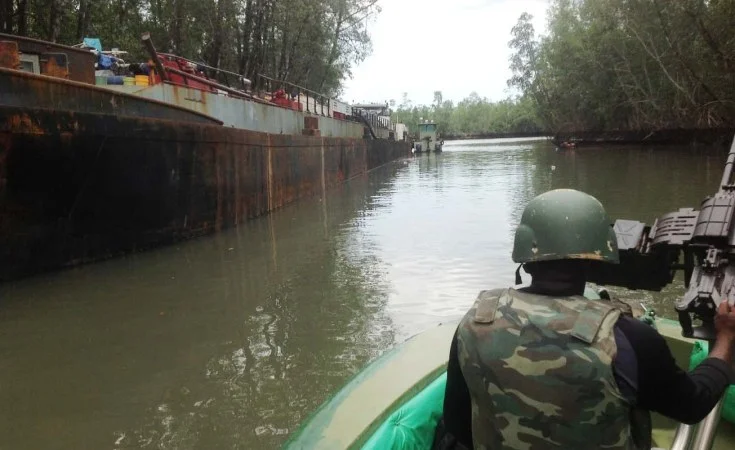Nigeria’s coastal waters, situated at the heart of the Gulf of Guinea, have become a hotspot for maritime piracy, posing severe risks to seafarers. A report from London-based maritime intelligence firm Dryad Global highlighted that Nigeria’s seas are among the world’s most dangerous, accounting for nearly all global seafarer kidnappings in recent years. The Gulf of Guinea, stretching from Senegal to Angola, recorded 95% of the 135 seafarers abducted worldwide across 22 incidents last year, according to the International Maritime Bureau. This alarming statistic underscores the urgent need for robust security measures to protect vessels and crews navigating these waters.
Current Security Challenges
Nigeria’s maritime security framework currently prohibits ships, including those in transit, from carrying armed private security personnel. Instead, vessels rely on escorts provided by licensed boats manned by Nigerian Navy personnel. While this approach aims to maintain national control over security operations, Dryad Global argues it falls short in addressing the escalating violence and impunity of pirate attacks. The report notes that Nigerian pirates operate with increasing boldness, endangering seafarers’ lives and disrupting commercial shipping operations.
Proposed Role for Private Security
The Dryad Global report advocates for Nigeria to revise its maritime security policies to allow private security companies to complement naval efforts. It suggests that Nigeria must find a balance between maintaining national security oversight and enabling third-party providers to bolster protection for commercial vessels. The report acknowledges Nigeria’s leadership in regional anti-piracy efforts, particularly its planned $195 million investment in aircraft, boats, and vehicles to enhance maritime security. However, it warns that the Nigerian Navy alone cannot effectively curb the piracy threat, given the scale and complexity of the challenge.
Legislative Efforts and Criticism
In 2019, Nigeria introduced the Suppression of Piracy and Other Maritime Offences Act, a pioneering law in the Gulf of Guinea aimed at imposing heavy penalties on pirates. Despite this progressive step, Dryad Global criticized the law’s implementation, noting that the only prosecutions so far have targeted a private company involved in facilitating a ransom payment, rather than actual pirates. The report suggests that this focus reflects a governmental priority to maintain control over commercial security operations rather than directly tackling piracy. This misallocation of enforcement efforts, according to the firm, hinders progress in securing Nigeria’s waters.
Balancing National Control and Security Needs
Nigeria’s reluctance to permit armed private security on vessels stems from concerns about national sovereignty and the potential risks of unregulated arms in its waters. Authorities argue that recent investments in naval equipment and training will eventually reduce the need for private security providers. However, the Dryad Global report emphasizes that integrating private security could enhance, rather than undermine, national efforts. By allowing licensed private firms to operate under strict regulations, Nigeria could strengthen its maritime security framework while supporting the safety of international shipping routes.
Looking Ahead
The persistent piracy threat in the Gulf of Guinea demands a multifaceted response. Nigeria’s strategic position in the region positions it as a key player in addressing this global issue. By reconsidering its stance on private security and refining the implementation of its anti-piracy laws, Nigeria could make significant strides in safeguarding its waters. The collaboration between naval forces and private security providers could create a more secure environment for seafarers and support the nation’s maritime economy.






